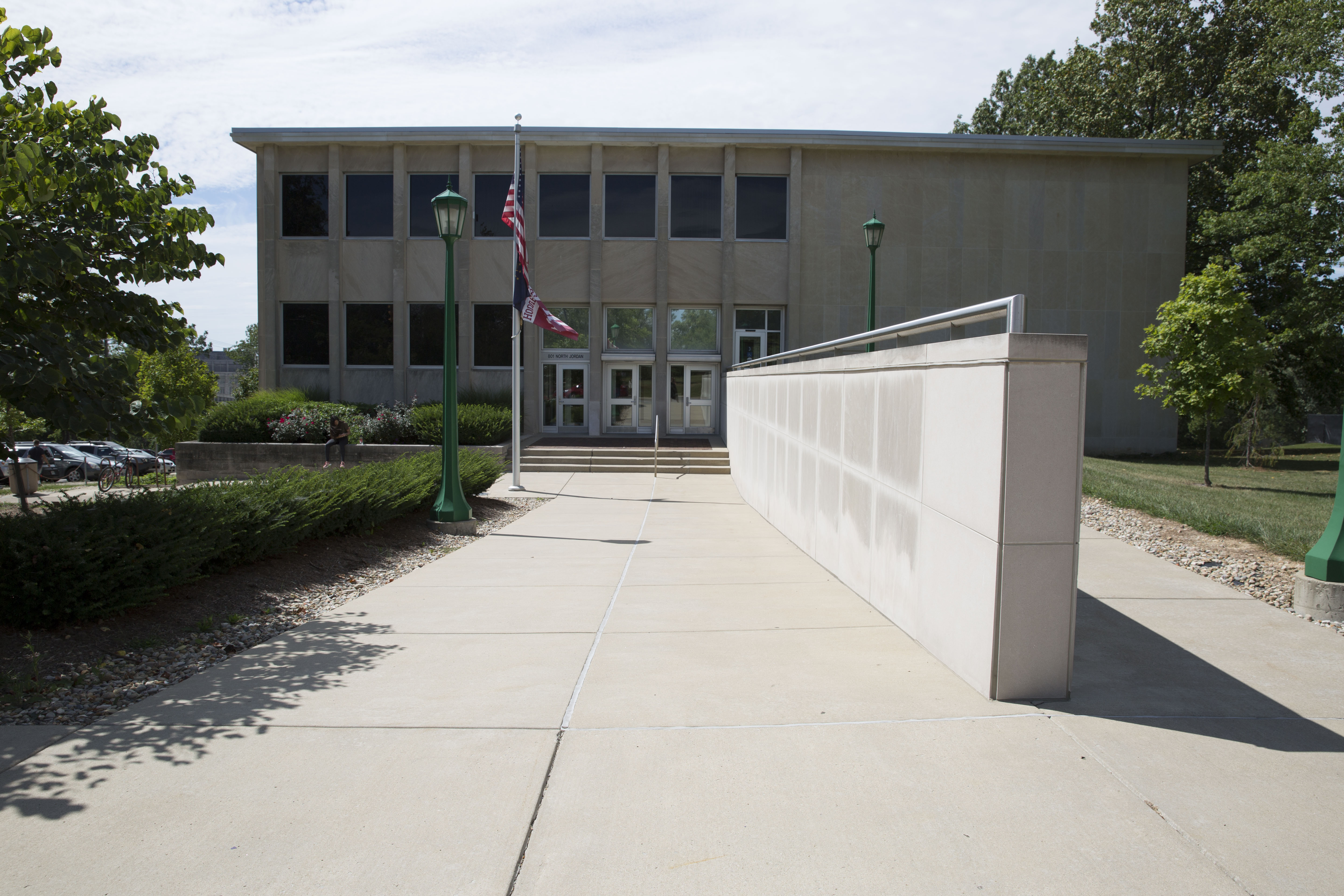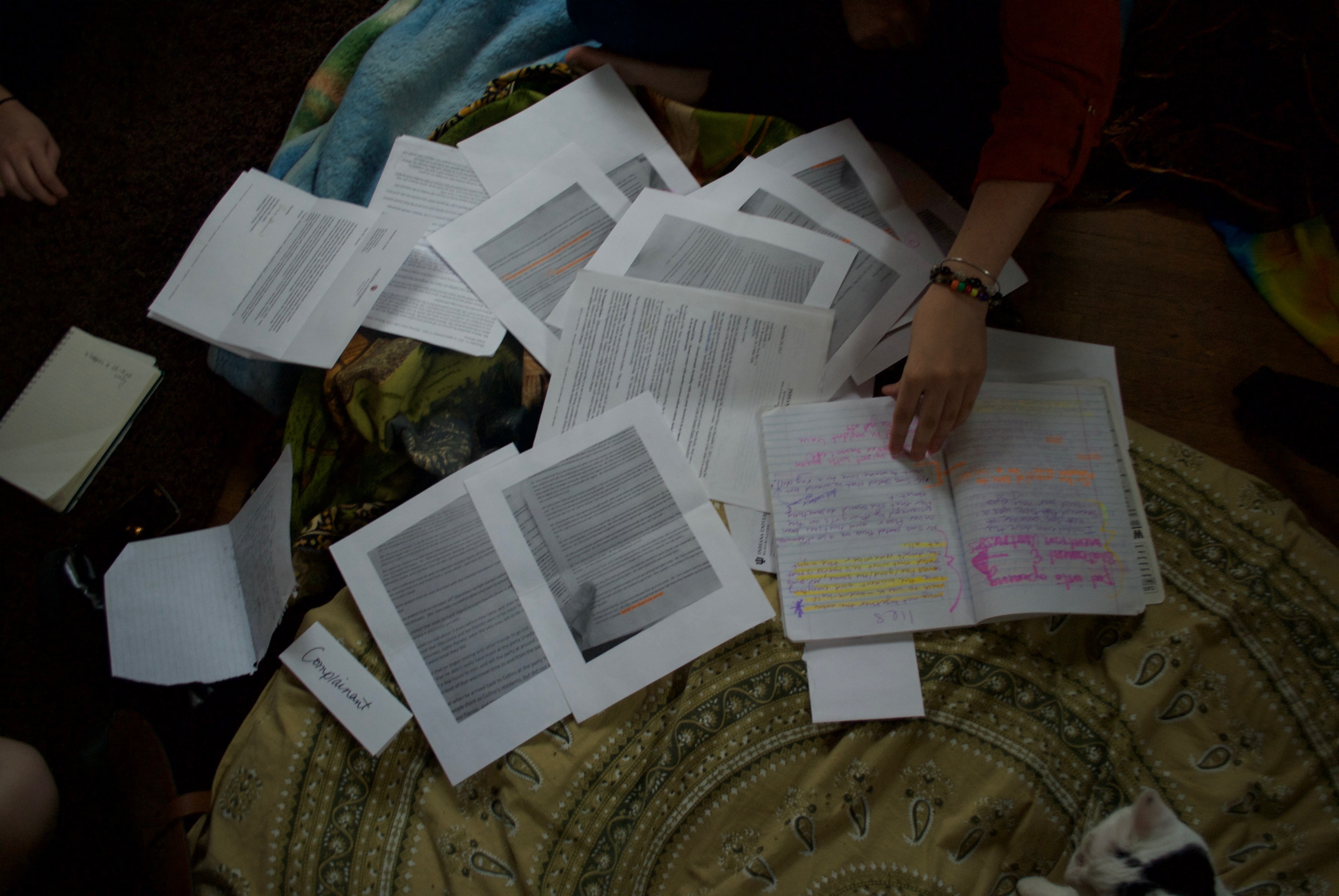





In a yearlong investigation, a team of reporters from the Indiana Daily Student interviewed more than a dozen current and former students about their experiences in the IU Office of Student Ethics, recently renamed the Office of Student Conduct. The team also reviewed lawsuits by students who have sued the University, saying their cases were unfairly handled, and interviewed the attorneys representing students in these cases.
The IDS team set out with a simple goal: to better understand the system of sexual assault reporting at IU. It’s difficult to understand the reality of this system because students’ reports are typically kept anonymous. After a long IDS history of reporting on sexual assault and this office in particular, we shifted our focus. We went directly to students. Through word of mouth, flyers on campus and sharing our own stories via social media, we sought to understand the system through those who have experienced it.
Our focus was to learn about the system from multiple perspectives, including both those who report sexual assault and those who are accused. While many volunteered their experiences reporting sexual assault at IU on the record, those accused of sexual assault were reluctant to attach their names to allegations that could affect their future education and employment. The IDS recognizes the stigma placed on these current and former IU students, and in turn we spoke with four local attorneys who have collectively represented dozens of students accused of sexual assault.
Reporters verified the existence of IU investigations for all students quoted in this series through documentation and email correspondence between the students and the Office of Student Ethics. We did not set out to prove or disprove specific allegations among students. Instead, we looked to better understand the system charged with making those decisions.
The IDS also interviewed IU administrators, national Title IX experts and those responsible for sexual assault services at other Big Ten universities. Reporters parsed through hundreds of pages of Title IX policy, placed multiple public records requests and sifted through documents provided by the students themselves.
Let this be clear: The IDS does not want to discourage students from reporting sexual assault. We want students — including both those contemplating making a report and those accused of assault — to take advantage of resources available at IU and in the Bloomington community.
The IDS wants students at IU to feel safe when speaking to administrators. We want students not to fear walking into the Office of Student Conduct. And we want students, both those reporting and those accused, to be treated fairly and their rights respected.
The IDS is dedicated to our continued reporting on issues of sexual assault. If you are someone who has experienced sexual assault or has been accused of sexual assault, the IDS wants to hear your story. Contact the IDS investigations team at investigations@idsnews.com.
If you believe you have experienced sexual assault, you have options. Any IU employee can help you find the appropriate administrator or faculty member to begin the University reporting process. Keep in mind that most IU employees are considered “responsible employees,” meaning they are required to pass along anything shared with them regarding sexual assault to IU’s Title IX coordinator or a deputy Title IX coordinator who may decide to open a University investigation.
If you would like to talk to someone before deciding whether to report, IU has several “confidential employees” with whom you can speak. These employees include those designated as confidential victim advocates within IU’s new Office of Sexual Violence Prevention and Victim Advocacy, mental health counselors at Counseling and Psychological Services and employees at the IU Health Center.
Non-University affiliated organizations like the Monroe County Protective Order Assistance Partnership and Middle Way House can also provide resources independent from a university investigation.
If you do not wish to start a police investigation, you should know that reports to the University are rarely referred to campus police. If you would like to pursue an investigation in the criminal justice system, you can file a police report with campus or local police. This starts an investigation independent of IU’s Office of Student Conduct, but you should take note that Indiana University Police often refer their cases to the IU Office of Student Conduct for a simultaneous University investigation.
* Indicates that an office or organization may offer confidential resources to students not wanting to file a criminal or University report. If you are looking to reach out to confidential resources, always be sure to ask someone first if they can provide confidentiality. For more on confidential employees at IU, see IU’s sexual misconduct policy.
If you have been accused of sexual misconduct at IU, there are several resources that can help you weigh your legal options, guide you through IU student misconduct procedures and help you navigate academic and residential life during this time.
You can keep up with developments in any open investigation by contacting the appropriate department, depending on whether a report was made to law enforcement or school officials.
IU’s Student Legal Services is a service free to all students that can provide advice for criminal and University cases, as well as make recommendations for local attorneys and legal experts. IU Student Advocates can explain and appear with you throughout IU’s investigation, as well as provide academic assistance and communicate with professors on the subject of absences, missed exams and grade change requests.
For information on resources related to sexual misconduct reporting and student misconduct procedures, see stopsexualviolence.iu.edu.
When I was named editor-in-chief for this semester, I had no idea this behemoth of a story was awaiting my approval. My predecessors had made reporting on sexual assault a priority for the Indiana Daily Student, but as other editors did, I had the option to veto this story.
Obviously, I didn't. It was too important not to run.
Investigating sexual assault is not a problem IU faces alone, but it is a problem the University can work to improve. Considering that IU is in the Big Ten Conference, a large number of people see the University's actions. The University not only has the power to change its own policy, but in a time during which sexual misconduct policy is a topic of national debate, IU can set a precedent in reform for those watching.
Carley, Nicole, Emily and Taylor spent more than a year reporting this project. It was a series that required a lot of hard work, and this team of journalists, along with our editors, went above and beyond by working dozens of hours every week. The reporting team pored through hundreds of pages of policy, filed multiple public records requests and interviewed students, attorneys, administrators and Title IX experts. Why? Because we wanted to tell this story the way it needed to be told.
This series does discuss flaws within the system, yes. But, it is not our intention to discourage students from reporting. We don’t take this topic lightly. Our staff members have reported their own sexual assaults to the University. Our series is meant to provide readers with a sense of what happens when sexual assault is reported, and our hope is to provoke change. Our specific examples of how other universities handle these cases show how IU can change by creating an environment in which all students feel safe to report.
But our work doesn't stop here. We still want to hear your stories, and our dedication to this issue extends beyond this series. The IDS staff shared our stories with you last fall, and you shared yours with us. We invite you to continue sharing with us at investigations@idsnews.com And as always, we want your feedback. Send us an email at editor@idsnews.com or tweet us at @idsnews.
As your campus news source, we’re here to serve you. And as your news source, it’s our job to tell you stories that matter.
Jamie Zega, editor-in-chief
Emily Abshire, managing editor
Eman Mozaffar, managing editor of digital
Mia Torres, creative director